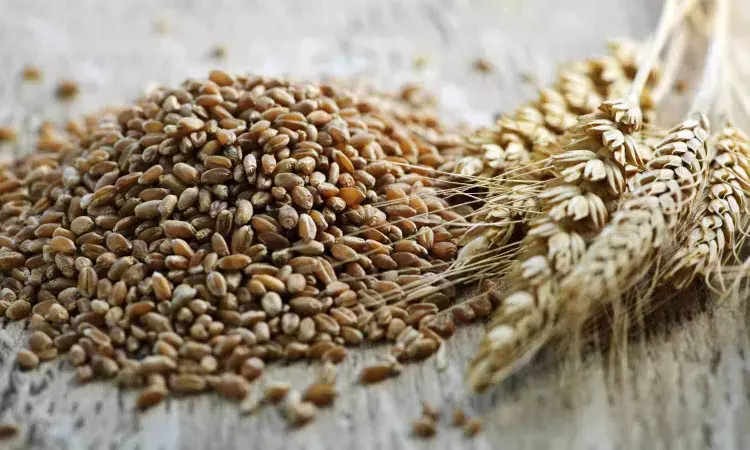- Home
- Medical news & Guidelines
- Anesthesiology
- Cardiology and CTVS
- Critical Care
- Dentistry
- Dermatology
- Diabetes and Endocrinology
- ENT
- Gastroenterology
- Medicine
- Nephrology
- Neurology
- Obstretics-Gynaecology
- Oncology
- Ophthalmology
- Orthopaedics
- Pediatrics-Neonatology
- Psychiatry
- Pulmonology
- Radiology
- Surgery
- Urology
- Laboratory Medicine
- Diet
- Nursing
- Paramedical
- Physiotherapy
- Health news
- Fact Check
- Bone Health Fact Check
- Brain Health Fact Check
- Cancer Related Fact Check
- Child Care Fact Check
- Dental and oral health fact check
- Diabetes and metabolic health fact check
- Diet and Nutrition Fact Check
- Eye and ENT Care Fact Check
- Fitness fact check
- Gut health fact check
- Heart health fact check
- Kidney health fact check
- Medical education fact check
- Men's health fact check
- Respiratory fact check
- Skin and hair care fact check
- Vaccine and Immunization fact check
- Women's health fact check
- AYUSH
- State News
- Andaman and Nicobar Islands
- Andhra Pradesh
- Arunachal Pradesh
- Assam
- Bihar
- Chandigarh
- Chattisgarh
- Dadra and Nagar Haveli
- Daman and Diu
- Delhi
- Goa
- Gujarat
- Haryana
- Himachal Pradesh
- Jammu & Kashmir
- Jharkhand
- Karnataka
- Kerala
- Ladakh
- Lakshadweep
- Madhya Pradesh
- Maharashtra
- Manipur
- Meghalaya
- Mizoram
- Nagaland
- Odisha
- Puducherry
- Punjab
- Rajasthan
- Sikkim
- Tamil Nadu
- Telangana
- Tripura
- Uttar Pradesh
- Uttrakhand
- West Bengal
- Medical Education
- Industry
Dietary wheat to prevent CNS inflammation in multiple sclerosis

Wheat has become a main staple globally. Wheat also provides substantial amounts of a number of components which are essential or beneficial for health, notably protein, vitamins (notably B vitamins), dietary fiber, and phytochemicals.
Researchers in a study published in Gut Immunity studied the effect of defined pro-inflammatory dietary proteins, wheat amylase trypsin inhibitors (ATI), activating intestinal myeloid cells via toll-like receptor 4, in experimental autoimmune encephalitis (EAE), a model of multiple sclerosis (MS).
Researchers induced EAE in C57BL/6J mice on standardised dietary regimes with defined content of gluten/ATI. Mice received a gluten and ATI-free diet with defined carbohydrate and protein (casein/zein) content, supplemented with: (a) 25% of gluten and 0.75% ATI; (b) 25% gluten and 0.19% ATI or (c) 1.5% purified ATI. The effect of dietary ATI on clinical EAE severity, on intestinal, mesenteric lymph node, splenic and central nervous system (CNS) subsets of myeloid cells and lymphocytes was analysed. Activation of peripheral blood mononuclear cells from patients with MS and healthy controls was compared.
Dietary ATI dose-dependently caused significantly higher EAE clinical scores compared with mice on other dietary regimes, including on gluten alone. This was mediated by increased numbers and activation of pro-inflammatory intestinal, lymph node, splenic and CNS myeloid cells and of CNS-infiltrating encephalitogenic T-lymphocytes. Expectedly, ATI activated peripheral blood monocytes from both patients with MS and healthy controls.
Dietary wheat ATI activate murine and human myeloid cells. The amount of ATI present in an average human wheat-based diet caused mild intestinal inflammation, which was propagated to extraintestinal sites, leading to exacerbation of CNS inflammation and worsening of clinical symptoms in EAE. These results support the importance of the gut-brain axis in inflammatory CNS disease they concluded.
Reference:
Zevallos VF, Yogev N, Hauptmann J, et alDietary wheat amylase trypsin inhibitors exacerbate CNS inflammation in experimental multiple sclerosisGut 2024;73:92-104.
MSc. Neuroscience
Niveditha Subramani a MSc. Neuroscience (Faculty of Medicine) graduate from University of Madras, Chennai. Ambitious in Neuro research having worked in motor diseases and neuron apoptosis is interested in more of new upcoming research and their advancement in field of medicine. She has an engrossed skill towards writing and her roles at Medical dialogue include Sr. Content writer. Her news covers new discoveries and updates in field of medicine. She can be reached at editorial@medicaldialogues.in
Dr Kamal Kant Kohli-MBBS, DTCD- a chest specialist with more than 30 years of practice and a flair for writing clinical articles, Dr Kamal Kant Kohli joined Medical Dialogues as a Chief Editor of Medical News. Besides writing articles, as an editor, he proofreads and verifies all the medical content published on Medical Dialogues including those coming from journals, studies,medical conferences,guidelines etc. Email: drkohli@medicaldialogues.in. Contact no. 011-43720751


